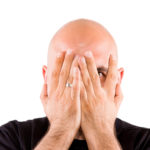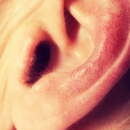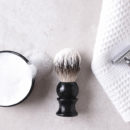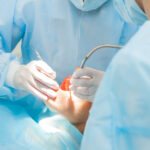
Every year, acne affects the lives of 50 million people in the United States. What’s more, getting out of one’s teenage years doesn’t guarantee living an acne-free life.
You read that right. You can still get acne even when you’re already 24 or 44. In fact, more than eight in 10 people aged 12 and 24 suffer from minor acne.
Adult acne persists, especially in women already in their 30s and 40s! Experts estimate that up to 15% of this female age group have this skin condition. Whereas 25% of all adult men can suffer from it.
The good news is, there are ways to make your skin forget about its trip down zit memory lane. That’s exactly what this post is for, so keep reading to get your flaring-up skin back to a healthy state!
Why Acne Keeps Haunting You in Your Adult Years
There’s a long list of adult acne causes, some of which have something to do with your hormones. It’s important to get to the bottom of what’s causing yours, as this will influence your treatment.
Your Hormones are Out of Wack
In women, hormone levels most often fluctuate when they’re about to get their periods. The same is true during pregnancy as well as right before and during menopause. Hormonal fluctuations can also occur when taking or discontinuing birth control pills.
This may sound funny, but men do have their “time of the month” too. Some even refer to it as the “man period“. According to sufferers, symptoms can be as uncomfortable as what women experience.
You’re All Stressed Out
Stress causes health problems, like coronary heart diseases and injury-causing accidents. It’s even linked to liver cirrhosis, lung diseases, and cancer. Now, researchers have added stress acne to the list.
One study found that the greater the stress severity, the more severe the acne. That means stressing out even more over your acne can make it worse.
One possible reason behind this is how the body responds to stress. During a stressful situation, the body generates more of the androgen hormone. This then causes an increase in sebum production.
Sebum is an oily substance secreted by the sebaceous glands. As researchers pointed out, this oily secretion is a “prerequisite for acne”.
The Products You Use for Your Skin and Hair May Be to Blame
Seeing more and more adult cystic acne? It’s possible that your hair and skin care products are exacerbating your condition.
Some of these products, especially those that contain oil, can clog your pores. So, if you don’t see terms like “non-acnegenic” or “non-comedogenic”, drop the stuff. Switch to those that have these on their labels.
It’s in Your Blood
The verdict is out, and scientists have found a link between genetics and acne. Do you have a first-degree relative, such as your folks or siblings, who has acne? If so, then your risk of getting acne is four times more than those who don’t.
What You Can Do Right Now
As you can see, we don’t have that total control over many of the causes of acne in adults. Stress is part of our lives, and we can’t blame our loved ones for having acne-prone genes.
This doesn’t mean you should already give up your hopes of clearing your flare-ups though.
For starters, you can deal with stress and put it back under control through exercise. If you want to go solo, meditating can help clear your mind while also lowering your stress levels. If you’re up for some company, hang out with friends who never fail to make you laugh.
Keep Your Diet in Mind
Don’t forget that your diet can also improve or worsen your skin condition. For instance, a study has found a link between dairy and acne. It noted that participants with acne drank more low-fat and skim milk than those without acne.
You should also consider cutting back on your sugar intake. Although sugar itself doesn’t cause breakouts, it can worsen your existing zits.
A possible reason is how sugar raises the body’s insulin levels. This, in turn, causes spikes in skin oil production, which, as mentioned above, is a precursor to acne.
Last, but not least, is to keep everything in moderation. This is especially true for men, who not only eat faster than women but also tend to overindulge.
No one can stop you from eating your favorite pizza and downing a beer (or two). But that doesn’t mean you should you make this a daily habit.
When to See a Specialist
But what if your acne doesn’t improve even when you manage to feel less stressed? Don’t worry, as medical adult acne treatment is available. In this case, treating acne and congestion involves seeing a skin specialist.
For more minor acne cases, topical treatments are often the first line of treatment. These include exfoliating agents like glycolic acid, lactic acid, and salicylic acid.
If you have more severe acne, you may have to undergo retinol treatment or chemical peels. Your skin care expert may also prescribe light therapy.
In case you have a serious hormonal imbalance, hormonal therapy may be in order. This is a more complex treatment, so be sure to explore all your options first.
There’s Hope for Adult Acne Sufferers
Adult acne doesn’t have to scar you for life, nor does it have to be a recurring condition. But you need to do your part in minimizing and controlling it. Avoid things that can only trigger stress, eat and sleep better, and don’t forget your skin care regimen.
If all else fails, get yourself checked by a skin care specialist ASAP! Keep in mind that acne can leave massive holes in their wake, especially when left untreated. Breakouts are bad enough, but the scars they can leave behind are way worse.
Ready for more tips that’ll help you look and feel your best at all times? Head over to our site’s Grooming section then!

























